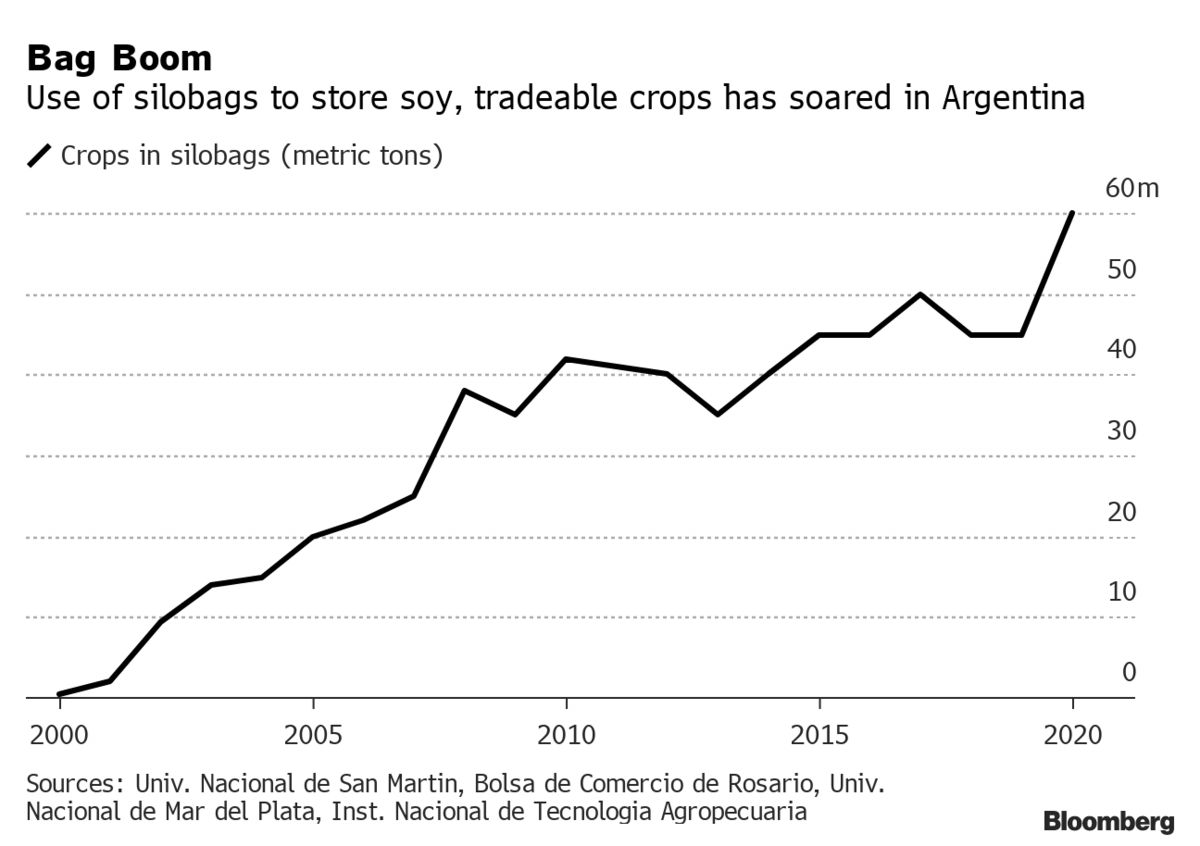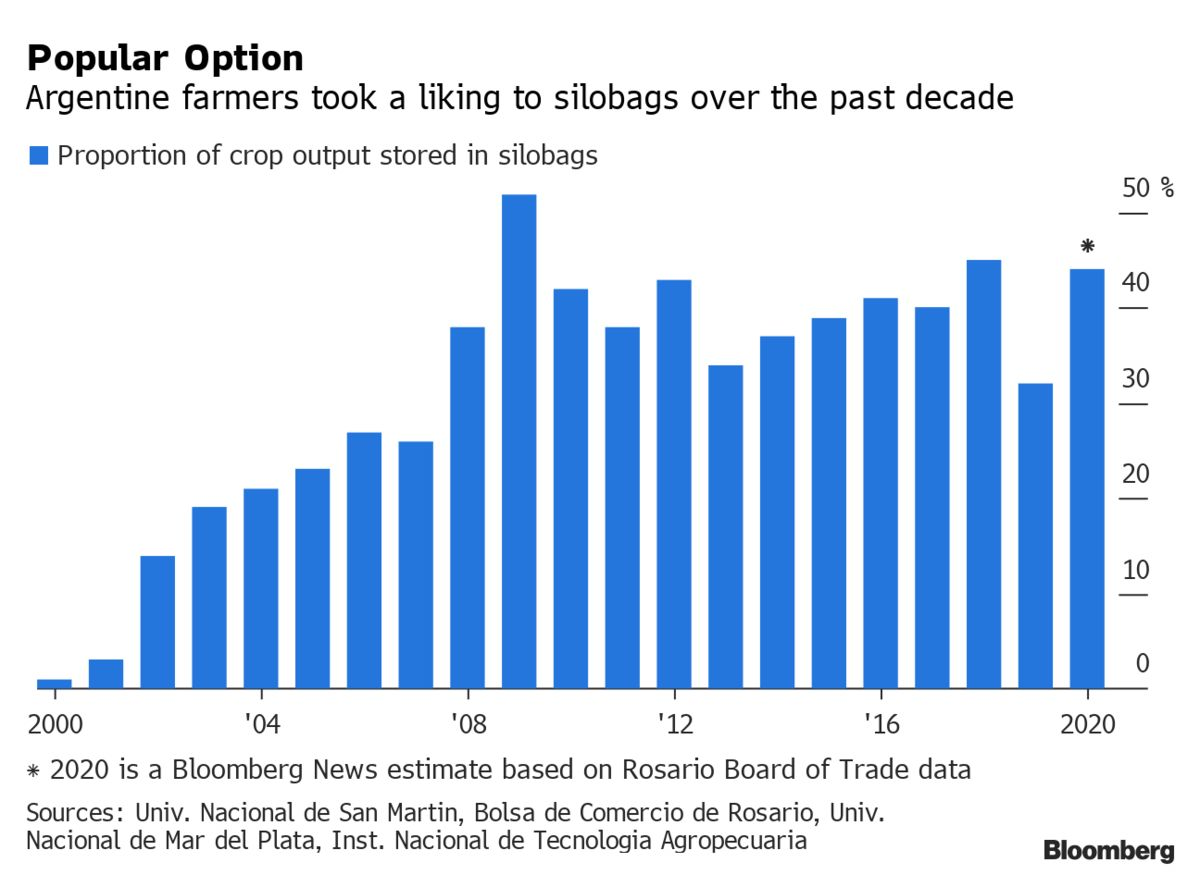Bags Of Soybeans Worth $100,000 Each Are Being Mysteriously Sabotaged Across Argentina
Tyler Durden
Tue, 11/24/2020 – 13:40
More than 150 unexplained instances of vandals destroying bags of soybeans worth nearly $100,000 each have been documented in Argentina this year. Over the last few months, the attacks have accelerated, despite their origins remaining somewhat of a mystery.
Many in the country attribute the acts of sabotage to growing tension between the leftist government in power and rich farmers in the countryside, according to Bloomberg. There are theories that the attacks are being carried out by “by pro-government zealots to scare the farmers into exporting their soybeans” which would, in turn, generate cash for the country.
Other theories chalk the attacks up to “personal vendettas and trade-union conflicts”, but farmers seem convinced the motivation is political. The country’s new Vice President, Cristina Fernandez de Kirchner, had formerly depicted the country’s farmers as a “greedy clique of businessmen” – a sentiment that farmers believe is emboldening the attacks.
Argentine farmers have used silobags to store soy on their fields for two decades. But with Argentina’s currency in collapse, the hoarding of commodities like soy is rising to levels not seen for a decade – which was the last time the government and farmers “clashed spectacularly”.
Farm association Argentine Rural Confederations said: “The vandalism is behaving like a virus that expands, directionless and undiscerning, with the sole premise of damaging for damage’s sake.”
Daniel Pelegrina, head of the Argentine Rural Society, said: “The attacks before were generally down to trade-union problems, but they’re colored differently now, more politically.”
As a result of the attacks, the the local agriculture minister in Cordoba is working on a project to equip soybean bags with alarms. Three companies in the area, which accounts for a disproportionate amount of the country’s soy output, have banded together to work on manufacturing bag alarms. Trials, which include using antennae for signals that can detect intruders, are nearly underway in the county of Rio Cuarto.
Conrado Berbe, president of Arsit SA, who is helping develop the alarms, said: “This can be used to protect tractors or trucks from theft, but there’s an especially big problem with silobags.”
If the testing goes well, Cordoba could get behind the idea and use taxpayer money to implement security measures across the province.
The hoarding of soy in Argentina stands at odds with soy farming in places like the U.S., which is forecast to hit seven year lows in soy stockpiles as demand spurred by China and a South American drought has picked up.


